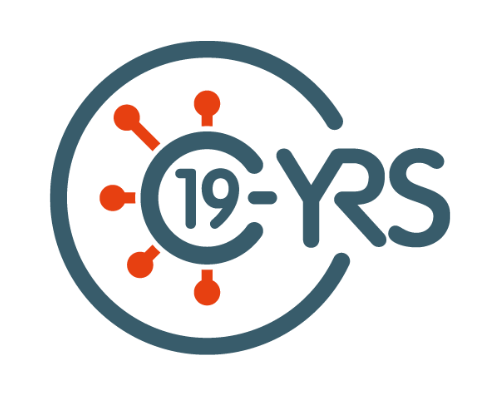Sleep
What is Sleep?
A naturally recurring state of body and mind which typically recurs for several hours every night where:
- The nervous system is relatively inactive
- Sensory activity decreases
- Eyes are closed
- Muscles are relaxed
- Consciousness is suspended
- Interaction with surroundings is reduced
Why do we need sleep?
- To survive
- To keep the nervous system functioning
- To rest and repair
- To learn
- To grow
- To maintain optimal emotional and social functioning
- To help encode memories and improve learning
- To minimise the effects of sleep deprivation
Restful and adequate sleep provides the foundation for optimal occupational performance, participation and engagement in daily life
The physiology of sleep
Nerve-signalling chemicals in the body, called neuro-transmitters, control whether we are awake or asleep
A chemical called adenosine builds up in the blood when we are awake and causes drowsiness. It breaks down when we are asleep.
When we fall asleep, the neurons at the base of the brain switch off the signals that keep us awake.
Neurons in the brain stem (which connects the brain and spinal cord) produce chemicals such as serotonin and norepinephrine that keep certain areas of the brain active while we are asleep.
Circadian Rhythm
- Also known as the ‘body clock’ or the brain’s master clock
- Circadian means “around the day” in latin
- Regulates changes in physical and mental characteristics over a 24 hour period
- Follows 24 hour cycle of the sun
- Regulates itself based on light cues from the environment which differentiate between night and day
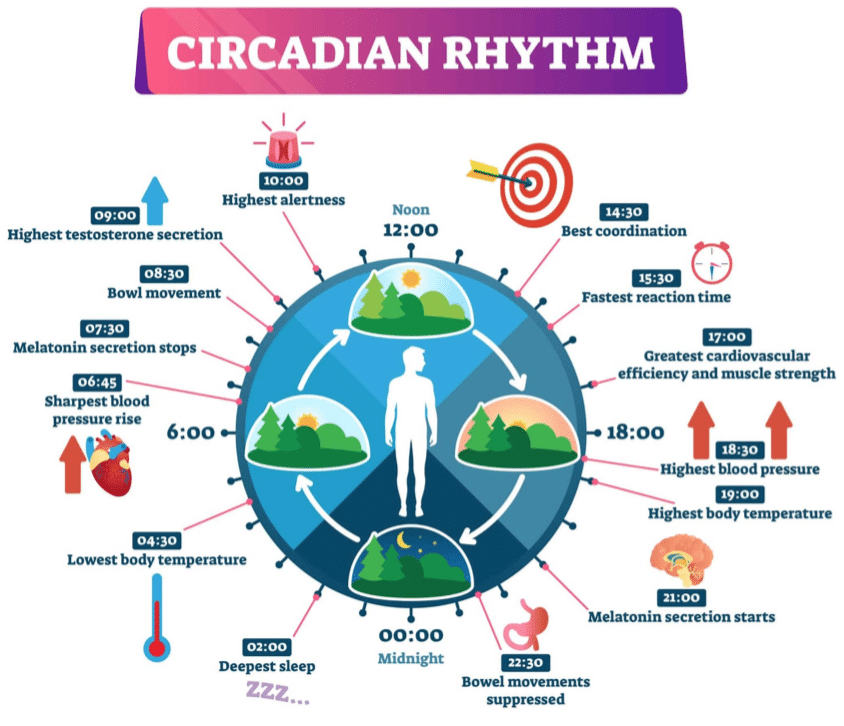
- Exposure to sunlight increases the brain’s release of a hormone called serotonin which is associated with boosting mood and feeling calm and focussed
- Regulates hormones, sleep patterns and the timing of the body clock
- A lack of natural daylight interferes with a chemical in brain called Melatonin
- Melatonin is also produced in the skin through sun exposure
- Exposure to daylight/bright light can provide the same energy boost as a nap
Supplements are discouraged as high doses built up in the body can create new problems
People need to have a regular clear, daily circadian rhythm for health melatonin production.
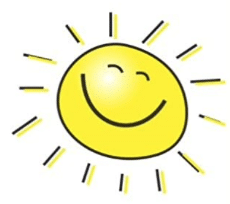
- During the daytime, and in daylight, melatonin production stops.Peak levels tend to occur at night time and help to induce sleep
- Melatonin is a hormone produced by the pineal gland within the brain and is the chemical which makes us feel sleepy
- Melatonin production is driven by the master body clock
- Melatonin is produced in response to darkness (reduced light entering the eyes)
- Melatonin in body sends signals to the brain that it is night time and switches off the signals that keep us awake
- Being exposed to light at night can block melatonin production
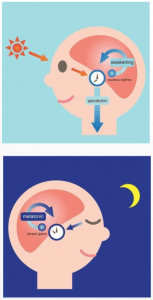
Things that can disrupt your body clock!
- Jet lag / travelling across different time zones
- Shift Work
- Blindness – retina cannot detect light
- Lack of sunlight or natural daylight
- Eating a big meal before bed
- Staying awake all night
- Sleeping in the daytime
- Stress
- Sleep disruption
- Ageing
- Chronic conditions (Alzheimer’s, Depression, Diabetes, Hypertension, Metabolic Syndrome, Cardiovascular Disease)
Sleep Cycle
- Sleep occurs in stages
- During the night you cycle through 2 stages: REM and non-REM sleep
- Parts of your brain are active during sleep
- Your brain and body acts differently during each sleep phase
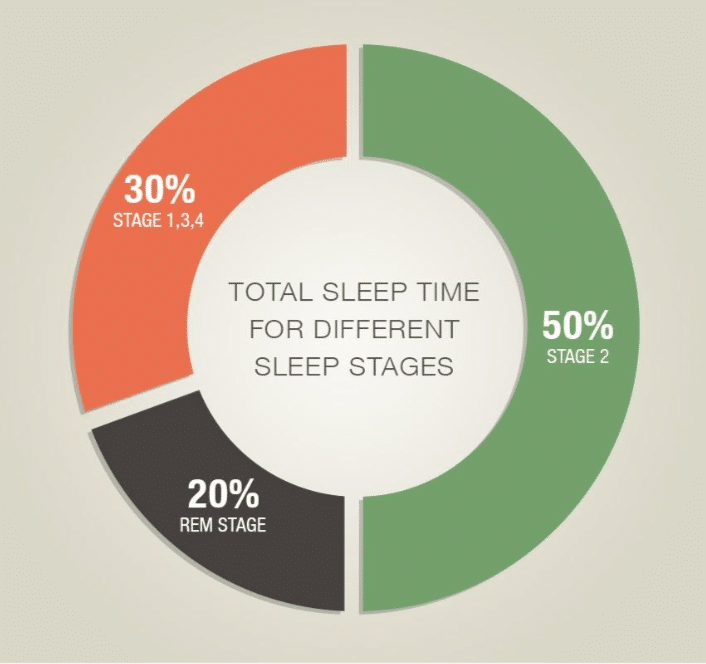
Each sleep cycle is comprised of 5 stages, and 1 cycle lasts around 90-110 minutes.
- Muscle activity slows
- Can be woken easily
- Brain waves become slower
- Eye movements stop
- Difficult to wake
- No eye movement or muscle activity
- Extremely slow brain waves
- HR/BP increase
- Rapid, irregular shallow breathing
- Eyes jerk rapidly
- Limb muscles temporarily paralysed
The most essential part of sleep for feeling rested and staying healthy
The last stage of the sleep cycle – starts about 90 minutes after you fall asleep.
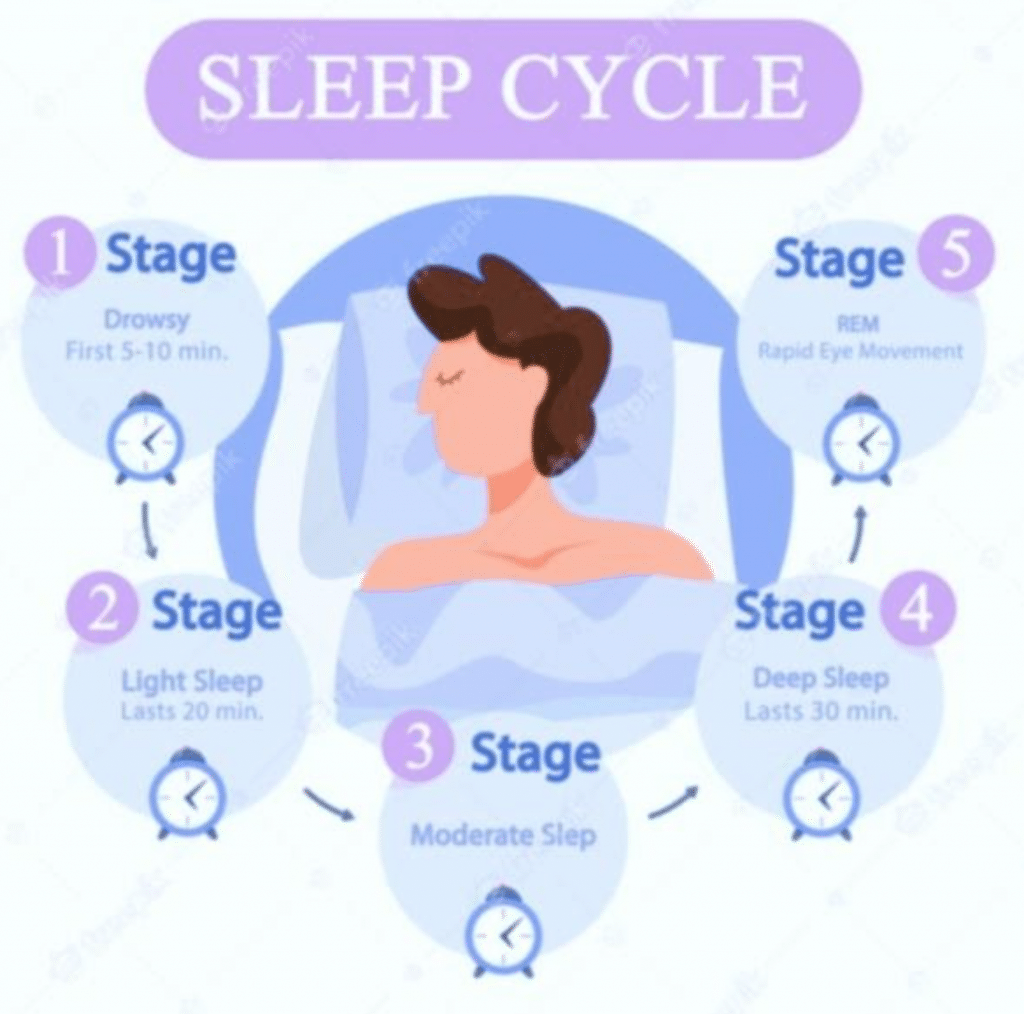
REM Sleep
- Brain activity increases which promotes learning
- The brain exercises important neural connections which are key to mental health and wellbeing
- The areas of the brain essential in making and retaining memories are stimulated
- Dreaming and processing of emotions occurs
- Increased inflammatory responses
- Increased risk of obesity, cardiovascular disease and diabetes
- Memory problems
- Low mood and depression
How much sleep should I get?
- There is no right amount of sleep
- Everyone is different
- The recommended amount for adults is 7-9 hours
- Can vary between 6-10 hours
- Changes as we get older (4-6 hours)
- Dependent on level of activity during the day
- More sleep is needed if deprived in previous days (“sleep debt”)
Sleep disorders and factors affecting sleep
Sleep and Covid-19
- Sleep is vital for recovery from Covid-19
- Sleep is a restorative process that is important for the proper functioning of the immune system
- Viral infections are known to impact sleep
- Other factors occurring as a result of Covid-19 which can impact sleep include:
- Being in hospital or a strange environment
- Lack of natural daylight
- A change in routine or sleep cycle
- Nightmares/flashbacks
- Side effects of medications
- Low mood/stress
Further research is also needed to understand whether alterations in cytokines (cells produced when the immune system is activated) contribute to disordered sleep.
Long Covid: Common issues
- Insomnia is one of the most common symptoms of Long Covid (“Coronasomnia”)
- Too little sleep
- Too much sleep
- Difficulty falling asleep
- Difficulty staying asleep
- Disturbed sleep (Pain/Positioning/Toilet)
- Disturbed cycle
- Waking up earlier than normal
- Too scared to sleep (PTSD)
- Anxiety/Over-thinking
- Difficulty ‘switching off’
- Waking up feeling unrefreshed
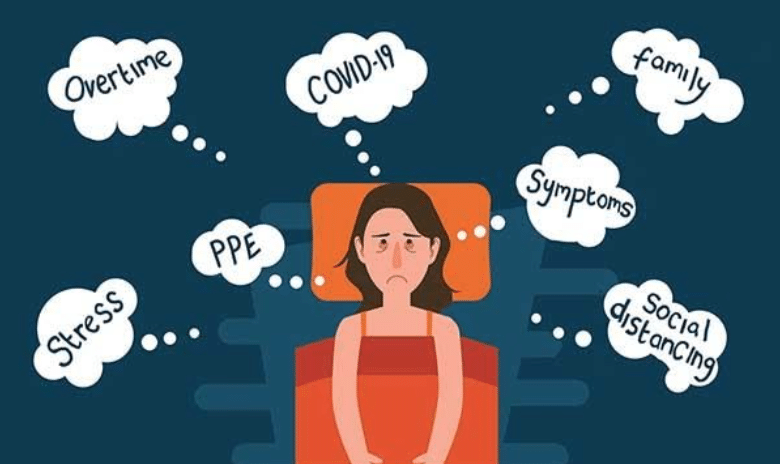
Sleep disorders
- Difficulty falling asleep
- Difficulty staying asleep
- Waking early in the morning
- Increases with age
- Affects more women (40%) than men (30%)
- A disorder of interrupted breathing during sleep.
- The windpipe collapses during breathing when the muscles relax causing snoring
- When air flow is blocked O2 levels drop and person wakes up
- Signs include snoring; gasping for air; waking frequently; morning headache; dry mouth; unrefreshing sleep; fatigue; excessive daytime sleepiness
- Associated with Obesity/neck circumference
- Excessive sleepiness
- Excessive time spent sleeping
- Lack of alertness during the waking episodes of the day
- Frequent sleep attacks which happen even after a normal amount of sleep
- Research suggests it is linked to genetics – defective hypocretin receptor 2 (based on studies on canines at present)
Conditions that affect sleep
- Depression/Anxiety/Stress/PTSD
- Fatigue
- Chronic Pain Syndrome
- Restless Leg Syndrome
- Menopause (6% suffer with insomnia)
- Alzheimer’s/Stroke/Head Injury
- Cancer
- Sensory Loss
- Seasonal Affective Disorder
Restless Leg Syndrome – Unpleasant crawling, tickling, tingling, prickling sensation in legs and feet and urge to move them for relief.
Common in elderly; linked to pregnancy, diabetes and anaemia and dopamine abnormalities
Brain – Changes in the brain can affect the neurotransmitters that control sleep
Napping
Do not nap after 3pm
- Naps taken late day/cycle will consist of more deep sleep
Longer naps can cause:
- Sleep inertia – feelings of grogginess and disorientation;
- Reduced cognitive performance;
- Disruptions to the circadian rhythm/body clock;
- Insomnia
- Decreased sleep quality and duration overnight
Keep naps brief and short (15-20 minutes)
- This ensures ensure you stay in the lighter stages of sleep and do not enter into slow wave/deep sleep
- The best time for a nap is early-mid afternoon
Alternatives to Napping
- Exposure to bright light can provide the same energy boost as a nap
- A moderate amount of caffeine can alleviate feelings of drowsiness (small cup of coffee)
The total amount of sleep over a 24 hour period should be no more than 8-9 hours.
Other factors affecting sleep
- Reduced REM/Deep Sleep
- Remain in lighter stages and wake more easily
- Less REM sleep/stay in light sleep
- Wake up after 3-4 hours due to nicotine withdrawal
- Anti-depressants suppress REM sleep
- Side effects of certain medications = insomnia, drowsiness
- Decongestants can contain caffeine
- Stimulates the parts of the brain that cause insomnia
Dreams and nightmares
- A succession of images, ideas, emotions and sensations that usually occur involuntarily in the mind during REM
- You become physically paralysed during REM so that you do not act out your dreams
- Most dreams last 5 to 20 minutes and you can have 4-7 dreams in one night
- During a typical lifespan a person spends about six years dreaming but 90% of these are forgotten
- You are more likely to remember a dream if you wake during the REM phase
- A nightmare is a disturbing vivid dream associated with negative feelings, threats to safety and feelings of anxiety of fear
- Usually occurs during REM
- They are more common in children but can happen at any age and are common after experiencing trauma (Post Covid PTSD)
- Other triggers include scary books and movies; substance misuse; medications; sleep deprivation and stress or anxiety
- Nightmares can cause distress, disrupt sleep and create a fear of going to sleep
- Nightmares can cause excessive sweating and a pounding heartbeat
- Remember there is nothing to fear in your dreams. Think about the nightmare when you wake up.
- Imagine what you would want to happen next – something that feels good!
- Give a new direction for the dream to take.
- Write down a solution.
Sleep Deprivation
- Not obtaining adequate total sleep
- Without sleep, neurons become depleted of energy and begin to malfunction
- Burning the candle at both ends
- Falling asleep within 5 minutes
- Yawning
- Trouble keeping eyes focussed
- Reduced concentration
- Impaired memory
- Decreased physical performance
- Hallucinations/mood swings
- Depression
- Needing micro sleeps
- Disrupted Sleep Cycle
- Sleep debt
- Tiredness
- Reduced energy
- Reduced productivity
- Bad mood/irritable
- Brain Fog/lack of focus
- Linked to chronic disease, reduced quality of life and productivity
- Reduced judgment/reaction time
- Increased risk of injury
- Reduced hand-eye coordination
- Easily intoxicated from alcohol
- Daytime sleeping
- Disrupts immune system
- Obesity
- Heart disease (Increased BP/HR)
- Diabetes
- Reduced life expectancy
- Reduced sex drive/fertility
Sleep deprivation magnifies the effects of alcohol – a fatigue person will become intoxicated faster.
A person who is sleep deprived will perform as badly as someone who is intoxicated.
Too little sleep creates a sleep debt.
Less than 5 hours sleep changes the way your body produces glucose which we use for energy.
Less than 7 hours more likely to gain weight.
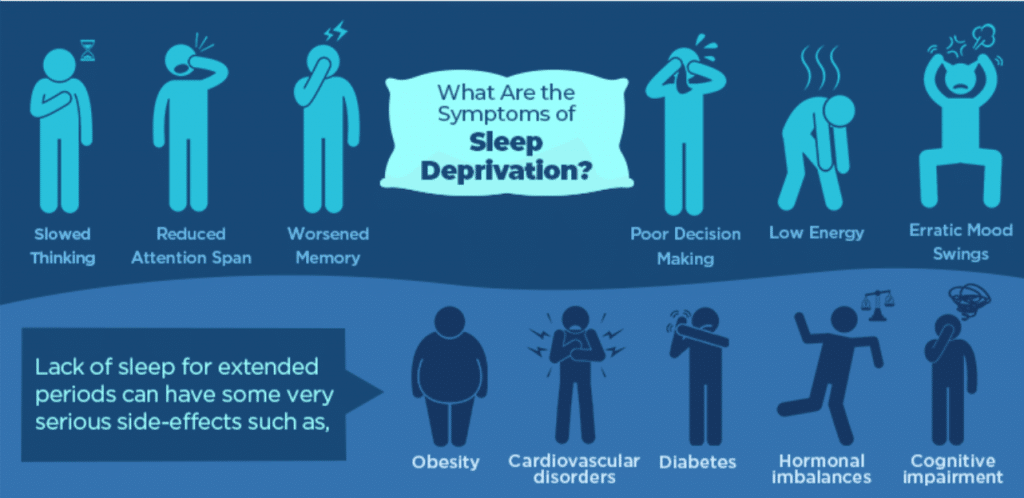
Sleep Hygiene
- Ensure good daylight/sunlight during waking hours
- Keep your bedroom for sleep and intimacy only
- Promote a sense of calm in the bedroom
- Reduce noise at bedtime
- Reduce or dim the lights at night time to clearly demonstrate night and day
- Reduce the light intensity to promote melatonin production – use light dimmer switches/hue white smart bulbs
- Use black out blinds, eye masks, ear plugs, thick curtains
- Reduce blue-light emitting devices. Banish screens – TV, smartphones, bright lights. Wear blue light blocking glasses several hours before bedtime
- Ensure adequate room temperature – keep the room below 70 degrees
- Use cooling/temperature control pillows and blankets
- Manage humidity and ventilation – open windows/use an air purifier
- Keep windows closed during peak pollen season
- Dust and sweep once a week and wash bedding regularly
- Keep pets off beds and use a mattress protector/encasement to minimise bed bugs, allergens, dust mites, sweat etc
- Keep a soft but firm mattress and use pressure relieving aids where necessary
- Ensure you have the correct pillow to optimise good neck support/shoulder support/positioning
- Use gentle music, aromatherapy, mood lights etc to promote calming environment
- Use sleep aids where necessary
- Ensure you get some good exercise during the daytime
- Start to wind down before bedtime
- Avoid caffeine, nicotine or alcohol
- Manage nocturnal toileting – reduce drinking/caffeine after 7pm
- Do not go to bed hungry BUT avoid heavy meals within 2 hours of bedtime
- Avoid energetic exercise within 2 hours of bedtime
- Drink a warm, milky drink or herbal tea (non-caffeinated) before bed
- Listen to calming music
- Do NOT clock watch
- If you wake for longer than 20 minutes then get up
- Optimise management of medical conditions/pain (via GP)
- Optimise management of allergies (anti-histamine; hypo-allergenic pillow)
- Use relaxation and mindful breathing techniques to relax the body
- Avoid high drama and any sources of stress before bedtime
- Try not to worry – the more you worry the more likely you are to wake up
- Keep a diary or notepad by your bed to jot down your thoughts
- Utilise ‘to do’ lists for the following day
- Cut back on the news/social media before bed
- Use Meditation/Relaxation/Distraction Techniques to calm the mind and manage over-thinking
- Keep to a normal daily routine
- Develop a bedtime ritual or routine
- Have a warm bath or shower before bed – this will trigger the body to lower its internal temperature
- Maintain a regular bedtime
- Wake up at the same time every day
- Resist the temptation to sleep during the day – avoid naps
- Stick to your regular sleeping hours – minimise lie ins
- Keep a sleep diary or use sleep tracker
Evaluate - What is contributing to your sleep problems?
- Sleep preparation
- Sleep participation
- Sleep latency
- Sleep quality
- Sleep duration
- Impact of work, life events, relationships, responsibilities, stress
- Impact of environment and lifestyle
- Impact of behaviour and routines
- Impact of medical conditions – management
Sleep diary and tracking devices
Sleep Diary
What is it? A record of sleep-related information containing:
- Bedtime
- Wake Time
- Time taken to fall asleep
- Number/duration of sleep interruptions
- Number/duration of naps
- Perceived sleep quality
- Medications
- Drinks/caffeine/tobacco
- Exercise
A sleep diary can help to evaluate your sleep; calculate your total sleep time; identify habits and patterns; and identify disruptions/factors influencing sleep.
- Sleep tracker apps
- Wearable devices – Apple, Garmin, FitBit
- External devices
- Export to share with health professional
- Measure sound, HR, bedtime, waketime
- Measure duration and quality of sleep
- Look at sleep behaviour
- How much time spent in REM/other cycles
- Patterns
- Audio recordings – analysis of sounds
- Movements
- Light level
- Snoring, talking, coughing
- Dream journal
- Trends and tips
“The art of falling asleep is trying not to”
Knowing how to clear your thoughts and relax helps:
- Sleep playlists (Spotify)
- Guided Meditation
- Sleep Stories (Calm/You Tube)
- Relaxation
- Restful imagery
- Mindful breathing
- Distraction
Further Help
- If changing habits hasn’t worked and lack of sleep is affecting your daily life and ability to cope please see your GP
- Short term medications can help to break the cycle of poor sleep
- CBT-i
- Trauma-Focussed CBT
- CBT focuses on the thoughts and behaviours that keep you from sleeping
Natural remedies – Valerian, Lavender, Melatonin
- Occupational Therapy/Physiotherapy
- Sleep Hygiene Group via SRFT
Sleep & Insomnia – Self Help Resources
https://www.cci.health.wa.gov.au/Resources/Looking-After-Yourself/Sleep
Sleep Station
www.sleepstation.org.uk/options
NHS Choices: Sleep
www.nhs.uk/live-well/sleep-and-tiredness
Sleep Self-Help
https://www.getselfhelp.co.uk/sleep-insomnia-self-help/
The Sleep Council (UK)
0800 018 7923 / 0845 058 4595
Resources
Thank you to the contributors for this section


